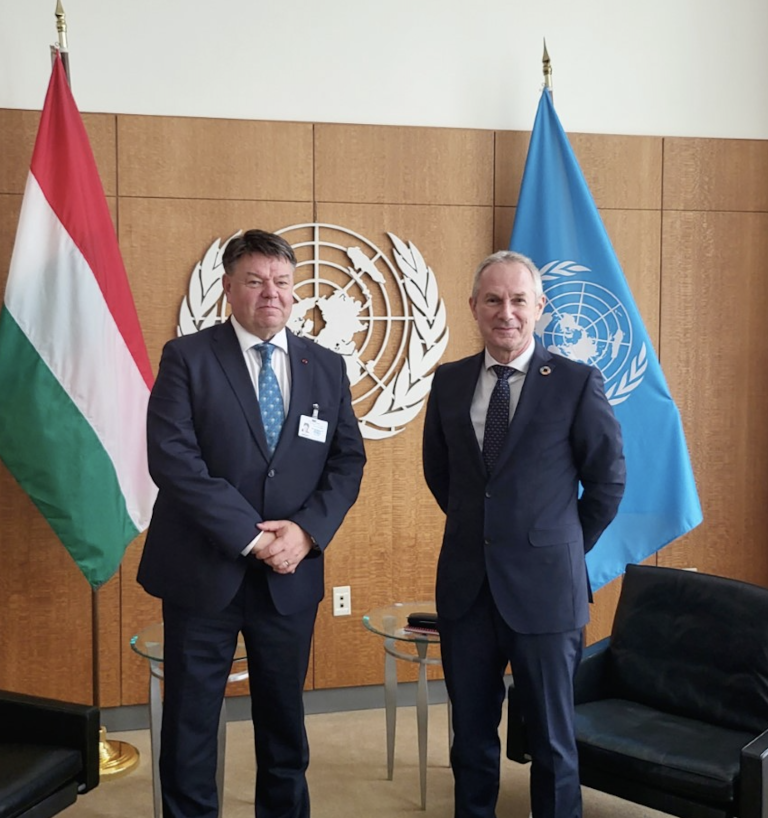Water agenda promotes global information system and early warnings
WMO and leaders of the Water and Climate Coalition supported the preparatory meetings to the UN 2023 Water Conference, which seeks to inject new urgency into achieving key sustainable development goals for water.

WMO and leaders of the Water and Climate Coalition supported the preparatory meetings to the UN 2023 Water Conference, which seeks to inject new urgency into achieving key sustainable development goals for water.

WMO Secretary-General Prof. Petteri Taalas also took part in a high-level event in New York with the COP27 presidency, focussing on water actions in COP27. This includes the High-Level Round Table on Water Security.
"Better global water information services will be a transformative game changer, revolutionizing how UN Members States are equipped to address increasing flood, drought and water-security risks," Stefan Uhlenbrook, WMO Director of Hydrology, Water and Cryosphere.
Two of the key game changers highlighted through the discussions were:
- An open global water information system and platform that integrates physical and societal data relevant for SDG6 to ensure that actionable information is freely accessible, consistent, comparable and interoperable at scale and supports preparedness and resilience.
- Freely accessible Early Warnings for All system based on consistent water information.
Overarching themes were agreed for the UN Water Conference, including Water for Climate, Resilience and Environment and Water for Cooperation, including scientific cooperation.
We are seriously off track to meet the current goals of the water-related SDGs, especially SDG6 and we are nowhere near ensuring resilient water adaptation to climate change as well as demographic and socioeconomic development for the future.
A major obstacle to provide efficient and sustainable water solutions is the lack of data and information about the current and future availability of water resources.
“Today, more 60 % of WMO Member States report insufficient and declining capabilities in hydrological monitoring and, thus, are increasingly unable to provide decision support in the water, food and energy nexus, to all water-related sectors (and there are many), or related to increasing – in number and impact – floods and droughts,” Dr Uhlenbrook told the New York meeting.
“Political decision makers around the world therefore lack a trustworthy information base to take informed decisions. This situation is not acceptable and not sustainable in the 21st Century and seriously threatens the Sustainable Development Agenda,” he said.

WMO is leading a global action plan to ensure every person on Earth is protected by early warning systems within five years. This will consist of several components, including better global water information services, which will allow countries to monitor and better manage their water resources in the years ahead.
Early Warning Systems are considered a low hanging fruit in climate change adaptation and can provide a more than tenfold return on investment.
“Now, we now seek your political support to make this contribution to the Water Action Agenda a reality to be able to protect all people and future generations from growing global threats from water-related hazards,” said Dr Uhlenbrook.









